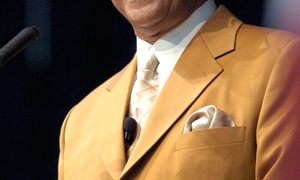SEOUL, South Korea — The execution of the uncle of Kim Jong-un, North Korea’s leader, had its roots in a firefight between forces loyal to Mr. Kim and those supporting the man who was supposed to be his regent, according to accounts that are being pieced together by South Korean and American officials. The clash was over who would profit from North Korea’s most lucrative exports: coal, clams and crabs.
North Korean military forces were deployed to retake control of one of the sources of those exports, the rich crab and clam fishing grounds that Jang Song-thaek, the uncle of the country’s untested, 30-year-old leader, had seized from the military. In the battle for control of the fishing grounds, the emaciated, poorly trained North Korean forces “were beaten — very badly — by Uncle Jang’s loyalists,” according to one official.
The rout of his forces appears to have been the final straw for Mr. Kim, who saw his 67-year-old uncle as a threat to his authority over the military and, just as important, to his own family’s dwindling sources of revenue. Eventually, at Mr. Kim’s order, the North Korean military came back with a larger force and prevailed. Soon, Mr. Jang’s two top lieutenants were executed.
The two men died in front of a firing squad. But instead of rifles, the squad used antiaircraft machine guns, a form of execution that according to South Korean intelligence officials and news media was similar to the one used against some North Korean artists in August. Days later, Mr. Jang himself was publicly denounced, tried and executed, by more traditional means.
Only a few months ago Mr. Jang was believed to be the second most powerful man in North Korea. In fact, American intelligence agencies had reported to the White House and the State Department in late 2011 that he could well be running the country behind the scenes — and might edge out his inexperienced nephew for control. In part that was based on his deep relationship with top officials in China, as well as his extensive business connections there.
Mr. Jang was the husband of Kim Kyong-hui, the only sister of Mr. Kim’s father, the longtime leader Kim Jong-il. Mr. Nam told the committee Monday that Mr. Kim’s aunt had retained her position in the hierarchy, even while the purge of Mr. Jang’s other associates continued. But he denied news reports in South Korea and Japan that some of Mr. Jang’s associates were seeking political asylum in Seoul and Beijing.
Mr. Nam pointed to Vice Marshal Choe Ryong-hae, the top political officer in the North Korean People’s Army, and Kim Won-hong, the head of the North’s secret police and its intelligence chief, as the government’s new rising figures since Mr. Jang’s execution, the two lawmakers said.
Source: New York Times

















































































































































































































































![[Video] Chicago Police Officers Caught On Video Telling Two Black Men "We Kill Mother F**kers"](https://earhustle411.com/wp-content/uploads/2018/07/evil-cop-3-300x180.jpg)
![[Video] Chicago Police Officers Caught On Video Telling Two Black Men "We Kill Mother F**kers"](https://earhustle411.com/wp-content/uploads/2018/07/evil-cop-3-80x80.jpg)












![[Video] White Woman Calls The Cops On Black Real Estate Investor, Cops Threaten To Arrest Her For Harassing Him](https://earhustle411.com/wp-content/uploads/2018/05/nosy-neighbor-300x180.png)
![[Video] White Woman Calls The Cops On Black Real Estate Investor, Cops Threaten To Arrest Her For Harassing Him](https://earhustle411.com/wp-content/uploads/2018/05/nosy-neighbor-80x80.png)


![White Scientist Says The Black Community Is Being Targeted By The Medical System, They Are Deliberatly Being Poisoned [Video]](https://earhustle411.com/wp-content/uploads/2016/05/mike-adams-300x180.jpg)
![White Scientist Says The Black Community Is Being Targeted By The Medical System, They Are Deliberatly Being Poisoned [Video]](https://earhustle411.com/wp-content/uploads/2016/05/mike-adams-80x80.jpg)








![Teenage Girl Shot In Her Stomach Three Times But Took Time To Post To Facebook [ Video]](https://earhustle411.com/wp-content/uploads/2016/02/Gangster-chick-300x180.jpg)
![Teenage Girl Shot In Her Stomach Three Times But Took Time To Post To Facebook [ Video]](https://earhustle411.com/wp-content/uploads/2016/02/Gangster-chick-80x80.jpg)







